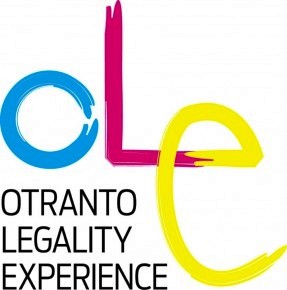Italian journalists face in serious difficulties investigating organised crime and links with business. Cecilia Anesi reports from a conference highlighting the issue
Global organised crime and global finance are much more closely linked than we think, and those who try to investigate their relationship often find themselves met with a wall of silence.
This issue was recently addressed at the Otranto Legality Experience (OLE), an international event in its second year, which took place in Puglia, southern Italy. The event addressed the relationship between organised crime and globalisation, with a specific focus on global finance and the way the criminal organisations penetrate it, looking at issues such as money laundering and corruption.
The event was coordinated by FLARE, a network of civil society organisations committed to social struggle against organised crime, and was attended by over 200 young people from across the world. It is the transnationality of the organised crime, the hinge of OLE, with the awareness that the only way to defeat such criminality is the very same international spirit.
Organised crime is increasingly permeating global finance, and is ever-changing in its shape and style. It has begun to play a crucial role, offering the legal market the chance to exploit a competitive — and criminal —economic system. The dangers and the difficulties encountered by journalists or researchers when trying to investigate this topic are huge, as explained at OLE by John Christensen, director of Tax Justice Network International, and by Roman Shleynov, investigative journalist with the Russian magazine Vedomosti.
Christensen believes the criminal financial system is based on corruption, which has become an endemic problem of our society, deeply rooted in our culture, something that today we take for granted. “Tax evasion made by corporations happens at an industrial level, and it costs the poorest countries of the world 160 billion dollars per year. But while the Western world has the courage to point the finger at African countries as corrupt countries, but we are never heard saying the same about white lawyers. Nevertheless we do know that London is the world’s largest off-shore haven, responsible for having exported such a system in the whole world.” Christensen believes we should look at corruption in a new way, considering not only the demand side, but also the supply side.
Moreover, he maintains corruption is also particularly hard to fight because those who try to uncover it face a wall of silence.
“I have been working for many years together with investigative journalists and I can tell you that every time they have tried to investigate who is behind certain businesses, or where the money goes, they inevitably crashed against a wall of silence made of shell companies, of unreachable off-shore companies.
And I think that silence means censorship: in the moment in which you cannot penetrate the secrecy wall you understand that secrecy is against the very ideal of freedom of speech. And we have plenty of governments in the world who do praise freedom of speech but then, at the same time, protect criminal activity.”
Russia is another suitable example of a country where it is difficult to track financial flows. Roman Shleynov knows it well, having conducted a number of investigations both for Vedomosti and newspaper Novaya Gazeta.
“In Russia,” he explains “the standard way of doing business is through informal agreements between parts. For example, a person might open a company and then pass it on to somebody else, and what links the two persons is an informal agreement. Often documents are not complete, and in some cases they are completely missing. There is a wide use of shell companies and off-shore companies that are opened in tax heavens such as Switzerland or Luxembourg, which means it is impossible for us journalists to find out about them unless law enforcement in Russia uncovers some tracks. Businessmen who use off-shore realms are not necessarily criminals; it might also happen that they want to hide their assets from the state, because state officials can be dangerous for them.”
“Concerning the presence of organised crime in Russia — financially speaking — we can see how it is closely connected to the state officials. This means in most cases the committed crimes are not officially investigated and recognised as crime, and journalists can only cover the links between actors, or unclear situations but cannot reconstruct the whole process of the criminal activity.” Corruption is thus a widespread phenomenon.
Shleynov adds, “the result is that often it becomes possible to predict the winner of a tender, because there is a tendency of non-transparency which allows businessmen to make business as they like, without respecting the rules of the licit market, because they feel public opinion means nothing compared to the political one.”






